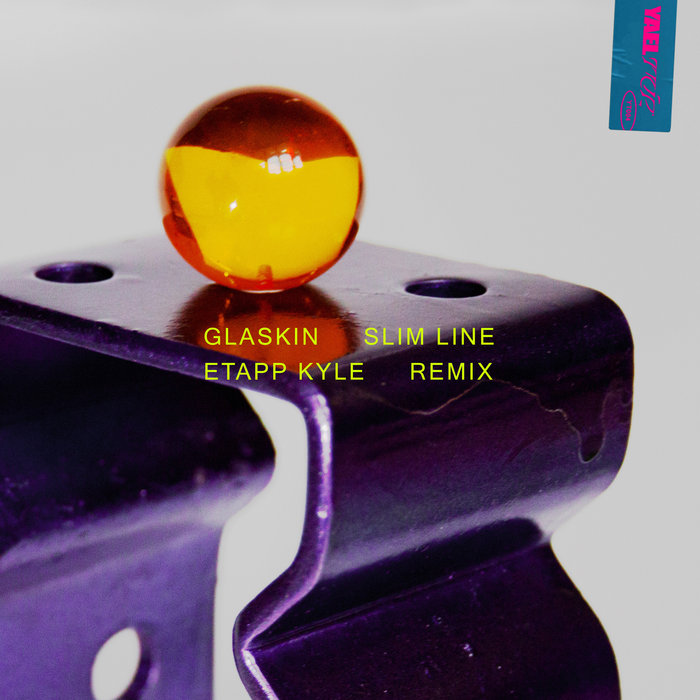
Slim Line (Etapp Kyle Remix) – GLASKIN
this blog is GROOVY – check out great Soul, Funk, Jazz, Hip Hop, Bass, Breaks , Reggae, House n many more TUNES
Blitz music, often simply called “Blitz,” is one electrifying genre that emerged from the vibrant punk scene in late 1970s England. It’s a wicked blend of punk rock energy and synth-pop pizzazz—a sonic cocktail sure to get you groovin’! So, buckle up as we take this funky ride through time.
The seeds of Blitz were sown in the chaotic streets of London. As punk rock exploded onto the scene with bands like the Sex Pistols and The Clash, a new wave was brewing. By the early ’80s, some musicians began experimenting with synthesizers and more melodic sounds while keeping that rebellious spirit alive.
Enter The Blitz Club—the epicenter where it all went down. Founded by DJ Steven Severin (yes, from Siouxsie and the Banshees fame) at The Batcave, this spot became a playground for eccentric fashionistas and innovative musicians alike. Picture neon lights flashing on pogoing punks mixed with glam-rock wannabes—it was pure magic!
Did you know that Boy George used to work at a funeral home before rising to fame? Talk about living your best life—combining glamour with grim realities!
As we dove deeper into the ’80s, bands like Visage, Spandau Ballet, and Duran Duran took center stage—thanks to their catchy hooks combined with stylish aesthetics. But don’t let those smooth melodies fool you; beneath those shiny surfaces lay intense emotions reflecting youth disillusionment.
One standout band from this movement was indeed Bow Wow Wow, led by vocalist Anneabella Lwin who famously made her debut while still just 13 years old! Her iconic leopard-print outfits had everyone chanting “I Want Candy!” Now that’s what I call starting early on your fashion game!
Anneabella once refused to wear clothes designed by anyone other than herself because she thought they were too boring! Absolutely fierce!
With influences ranging from reggae beats to electronic dance grooves, Blitz music encapsulated an era marked by excessive hairstyles and wild experimentation. Musicians adopted flamboyant styles akin to glam rock but added a touch more grit—think sequins covered in safety pins.
Around this time, performances became legendary for their theatrical elements; it wasn’t just about sound but also putting up an entire show packed with crazy visuals! Everyone wanted front-row seats at these wild raves where anything could happen—and usually did.
A notable character on stage? Enter Gary Numan—the man behind hits like “Cars.” He not only nailed that synthesized vibe but also sported one of the most iconic (and slightly bizarre) hairstyles ever seen—a futuristic look straight outta sci-fi movies!
Rumor has it that Gary got his inspiration for his haircut after watching Blade Runner! Now that’s taking style cues seriously… or perhaps too seriously?
As MTV burst onto screens worldwide in 1981, artists embraced video as part of their artistic expression—a major boost for blitz vibes! Iconic visuals merged seamlessly with catchy tunes which allowed bands such as Culture Club and Depeche Mode become household names virtually overnight.
Quirky personalities shone through larger-than-life videos; who could forget Cyndi Lauper’s multicolored hair shouting “Girls Just Wanna Have Fun!”? This period helped introduce blitz music beyond British shores into international waters—a true pop cultural phenomenon taking root globally.
And let’s not overlook how groundbreaking art direction splashed colors across our screens making everything feel electric again—from leg warmers dancing under strobe lights all over packed dance floors around town right down towards kitschy charm invoking nostalgia even today among fans young & old alike!
Cyndi Lauper’s eccentric makeup came after seeing photos of her mother when she was young—she said her mom looked like “a million bucks” so why shouldn’t she try it too?
Though its mainstream presence faded away during grunge takeover toward end ‘90s blaring guitars dominating instead ,the influence never really vanished entirely . Punky beats infused modern productions keep reminding us why we loved blitz originally — echos still ring loud thanks newer acts flourishing now well into twenty-first century .
Contemporary indie popstars like Dua Lipa owe part inspiration directly tracing roots back here ! They’ve forgotten neither swing nor groove making every single bop infectious noticeability great replacement record crates filled earlier days history capturing hearts another generation ahead !
In conclusion here we are now celebrating everything glorious coming together unitedly bridging differences throughout sociocultural spectrum connecting people reminds us wherever go forward towards future — groove lives forever ingrained soul rhythm surges onward keeping spirits high no matter backdrop strife faced day-to-day reality journey lived each moment possible truly embodied essence presented countless legends paved way embrace uniqueness ours inherently given birth blast last decades later rocking hard smiling joyous thrill shared amongst generations past present unite harmoniously timelessly unyieldingly driven force becomes quintessential heart beat echoes pure blissful exquisiteness lasting indefinitely since dawn recorded alteration transformation tempo linger proudly bright vivid existence emblazoned vibrant exchange resonate cleverly consolidated consecutively persistently glitting splendidly echo relive jubilantly inspiring creativity witnesses upon trip mesmerizing line everlasting soundtrack addition provided timeless resonance offered warmly accompanied kaleidoscope elation embodying quirky fun facts musical legacy catalogued form harmony opened door understanding encouraged visiting areas diverse exploration arts inspire tomorrow limitless subsequently beckons embrace joy inherent found within itself each track spun resonates pulsates imaginations fireflies illuminating beautifully boundless joyous occasion hyped bliss awaits adventure unfold endlessly…so shake what ya mama gave ya folks 🔊🎶

Slim Line (Etapp Kyle Remix) – GLASKIN